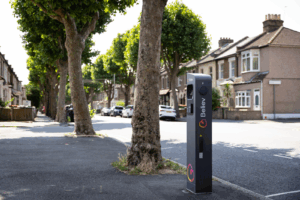mproving Healthcare starts in the neighbourhood, says Local Trust

Health starts in the neighbourhood: Reforming the system from the ground up argues that the neighbourhoods that people live in measurably impacts on their health. The quality of housing, local green spaces and people’s social networks all determine how healthy we are just as much as the ability to see a GP. That’s why Local Trust are proposing a radical change to the way the Government thinks about healthcare, shifting towards a neighbourhood centred approach that keeps people healthy in their daily lives.
To do this the Government must:
Devolve healthcare budgets to a local level and direct resources to neighbourhoods so people have a say on what would improve their healthcare.
Deliver programmes through and with neighbourhoods partnering directly with communities, and target the areas in greatest need
Create a dedicated investment fund to rebuild social infrastructure in the most disadvantaged neighbourhoods.
Local Trust has identified the neighbourhoods in England that face a double disadvantage: the highest levels of deprivation, and the weakest social infrastructure. Unsurprisingly these areas also experience notably poor health outcomes – not only compared to affluent areas, but also, compared to places that are equally deprived but have stronger social infrastructure. Their residents are more likely to suffer from 15 of the 21 most common health conditions, and life expectancy in these areas has been in decline since 2010.
Case study – Battersea Alliance
Battersea Alliance, a coalition of voluntary and community organisations emerging from Battersea Big Local, has invested over £600,000 in the past five years into funding community activities that address isolation, loneliness, and mental health issues by building social connections with people. Their approach focuses on prevention before medical intervention is needed.
The Alliance is actively collaborating with their local authority and the Southwest London Integrated Care Board (SWLICB), to pilot a preventative health programme which provides health-supporting community activities without requiring a GP referral. A recent social return on investment (SROI) analysis suggests that every £1 invested by the Alliance has created £5 worth of health-related benefits for their community.
Report author Kyle Vanelli who is a policy lead in neighbourhood healthcare said:
“Our health system spends billions treating illness but does little to keep people healthy in everyday life. Most of what makes us healthy happens in our neighbourhoods – good housing, social connections, and access to services – not in hospitals. If the 10-year plan is to succeed – to truly overhaul the NHS demands fresh ways of thinking. Our new report recommends a new model for the healthcare system: one where budgets are held closer to the communities they serve, the NHS works directly with other public services and communities have greater control over health budgets so they can tackle the root causes of illness where they live. This will reduce pressure on overstretched hospitals, tackle health inequalities at and save the NHS much needed money.”



